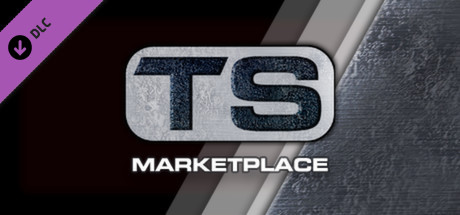TS Marketplace: BDA 80t Bogie Bolster Wagon Pack - Detailed Information

| Supported OS | Windows |
|---|---|
| Release Date | 11 February 2022 |
| Developers | Fastline Simulation |
| Publishers | Dovetail Games |
You will be redirected to the official Steam website
About this dlc
Hardware Requirements
In October 1975, a prototype emerged from Swindon Works as Design Code BD006B that was a conversion of an unfitted Bogie Bolster D. The wagon had air brake equipment fitted and was mounted on modern Y25C bogies, fitted with clasp brakes. The handbrake was applied by a single lever on each side, in contrast to the 2 levers per side of the original. There were 4 tensioner reels per side to help secure the load with straps, instead of the chains previously used and the gross weight was increased by 5t. When new, it had five fixed wooden bolsters for supporting the load. The vehicle was renumbered as 950000 was coded as BDA under TOPS and was painted in Freight Brown livery.
Two years later, the first production batch began to emerge from Ashford Works with 200 vehicles as Lot 3907 to Design Code BD006A. These were converted in the same fashion as the prototype and retained the low height wooden bolsters of that design, though there were now six of them. They were delivered in Freight Brown livery.
In the summer of 1978, Shildon Works began to produce the 600 wagons that would form Lot 3925 and were given the Design Code BD006C. Initially the only difference was that these wagons were fitted with 6 tensioner reels per side. About half way through the construction run, the bolster design was changed, with a wooden rubbing strip fitted to the metal supports reclaimed from the donor vehicles. This design raised the load by 3 inches and also had an extra pair of locating sockets for the stanchions that supported the load. The livery was changed from Freight Brown to the new Railfreight Flame Red during 1979, near the end of the conversion of this batch.
Vehicles 950801 - 950900 were converted as Lot 3965 in the final few months of 1979 at Shildon. These were to the final Design Code of BD006D, issued to reflect the change to disc brakes and a wheel operated handbrake that was mounted on the bogie. All were delivered in Railfreight Flame Red. A further 350 conversions to this design were completed over the 12 months from March 1980, once again at Shildon, to Lot 3968. It was intended that this lot would number 650 vehicles, but the last 300 were cancelled.
This pack contains examples of each of the main variations, excluding the prototype and the few vehicles that ran on experimental bogies. The wagons are available in Clean and Dirty condition in the appropriate livery or liveries. Empty vehicles feature randomly placed bolster stanchions. There are a selection of loads, ranging from lightweight U-channel to heavy slabs. Loaded vehicles have mass and braking effort tailored to each load type and also factor in the differences in the braking performance between batches. There are 4 random lettering styles available on each variation, though these can be fixed when placed in a scenario. Works plate details are dynamically assigned according to vehicle number. Intelligent tail lamps are used with most options featuring an oil lamp. The vehicles in Dirty Railfreight Red feature a Mk 1 battery flashing lamp, appropriate for the mid-late 1980’s.
The BDA 80t Bogie Bolster Wagon Pack for Train Simulator features:
- Freight brown and Railfreight flame red and grey liveries
- Clean and weathered variants
- Randomised decals with overrides
- Empty and Loaded versions with suitable physics
- Seven different loads - steel billets, steel blooms, pipes, H-beams, steel rods, steel slab and U-channel
- Animated hand brakes
- ‘Intelligent’ tail lamps
- Randomised bolster stanchions on empty versions
The pack includes a user manual with further details about the rolling stock and the customising of some of the features when using the wagons in scenarios.
Amtrak is a registered service mark of the National Railroad Passenger Corporation. All rights reserved. Used with permission. DB and the DB logo are trademarks of Deutsche Bahn AG. Used under license from Hitachi Rail Europe Limited. All rights reserved. All other trademarks are the property of their respective owners.